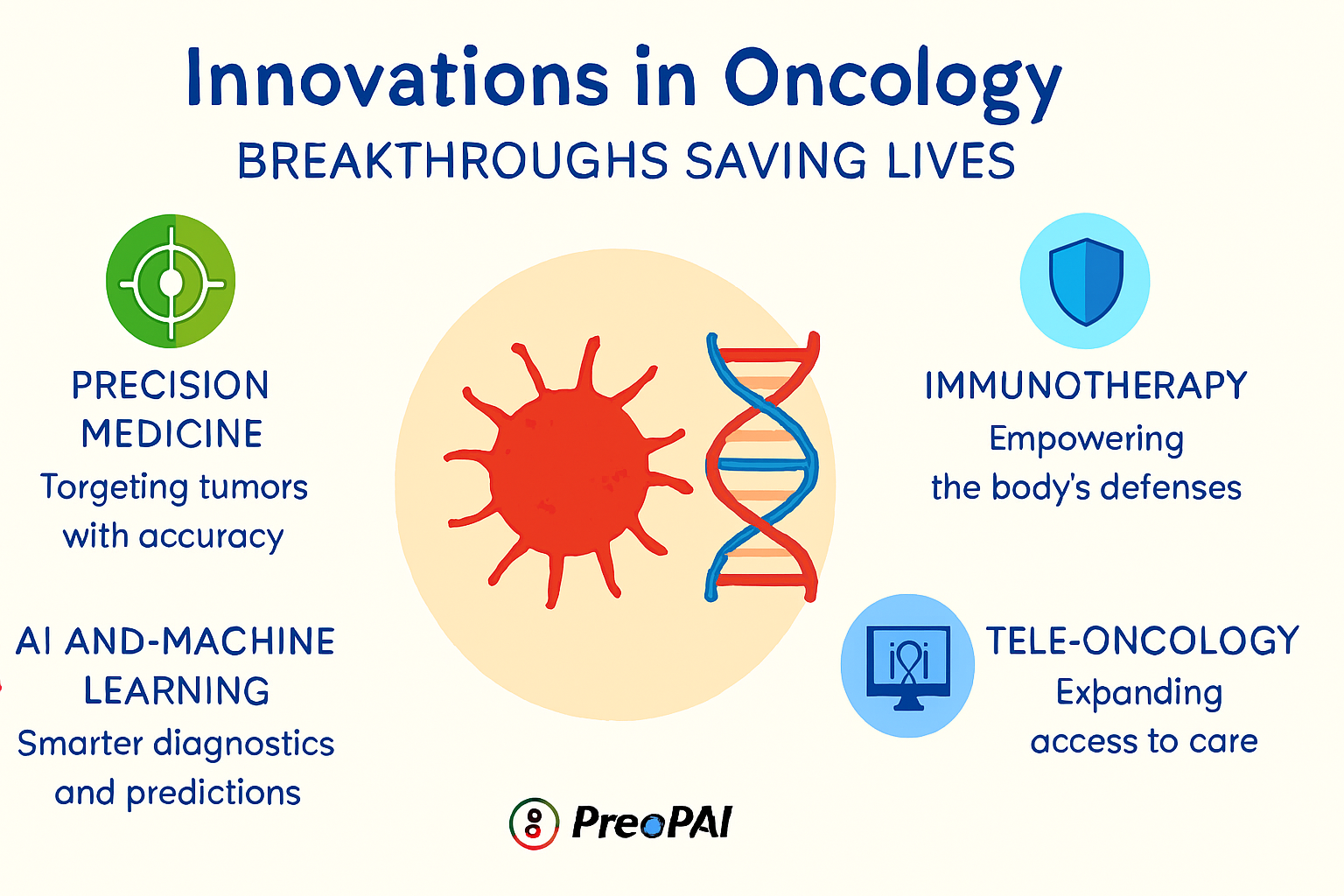
Cancer still tops the list of the most daunting health threats of our era. And yet, due to diligent research and technological progress, oncology is experiencing a revolution. From precision medicine to immunotherapy, innovations are not only lengthening lives—they’re changing the very essence of cancer treatment.
Precision Medicine: Precision Targeting of Tumors
Those days of “one size fits all” cancer therapy are over. Precision medicine employs genetic testing to customize treatments for the patient’s particular cancer profile.
Genomic sequencing identifies mutations that fuel tumor growth.
Targeted therapies such as tyrosine kinase inhibitors (TKIs) target specific proteins responsible for promoting cancer development.
Liquid biopsies provide non-invasive means of tracking treatment efficacy and catching recurrence early.
This strategy reduces side effects and increases efficacy, bringing hope to where other treatments fail.
Immunotherapy: Arming the Body’s Defenses
Immunotherapy has revolutionized treatment, leveraging the body’s own immune system to battle cancer.
Checkpoint inhibitors (e.g., pembrolizumab, nivolumab) inhibit proteins that keep immune cells from targeting tumors.
CAR-T cell therapy reengineers a patient’s T-cells to target and kill cancer cells.
Cancer vaccines are under development to prevent recurrence and enhance immune response.
These treatments have been incredibly successful in cancers that were previously untreatable, such as melanoma and some leukemias.
AI and Machine Learning: Smarter Diagnostics and Predictions
Artificial intelligence is transforming oncology by increasing diagnostic accuracy and forecasting treatment outcomes.
AI-enhanced imaging can identify tumors earlier and more accurately.
Predictive algorithms assist oncologists in selecting the best treatment regimens.
AI-based robotic surgery provides accuracy in tumor excision with less injury to adjacent tissue.
These technologies are accelerating cancer care, making it more precise and tailored to individual needs.
Tele-oncology: Widening Access to Care
Healthcare technology platforms are closing gaps in cancer care, particularly in underserved areas.
Virtual consultations enable patients to consult with experts remotely.
Remote monitoring enables real-time tracking of symptoms and side effects.
Digital therapeutics enhance mental health and treatment compliance.
Tele-oncology is making access more democratic, so geography no longer hinders quality treatment.
Next-Gen Therapies: Redefining Limits
Scientists are investigating innovative treatments that may reorient cancer therapy:
Oncolytic viruses that infect and destroy cancer cells while evoking immune response.
Nanomedicine for targeted drug delivery at the cellular level.
Epigenetic therapies that modulate gene expression without changing DNA sequence.
These experimental methods are promising in combating cancers that are resistant to traditional treatment.
Conclusion: A Future of Hope
The map of oncology is changing at a pace unprecedented in history. These breakthroughs are not merely scientific achievements—they’re lifelines for tens of millions of people. As the research goes on and access increases, the vision of making cancer a manageable or even curable disease moves closer to becoming a reality.
Whether patient, caregiver, or health professional, being informed about these advances has the power to enable informed choices and bring hope. The battle against cancer is not yet won, but the tide is shifting—and people are being saved each day.
Can you be more specific about the content of your article? After reading it, I still have some doubts. Hope you can help me. https://accounts.binance.info/register-person?ref=IHJUI7TF